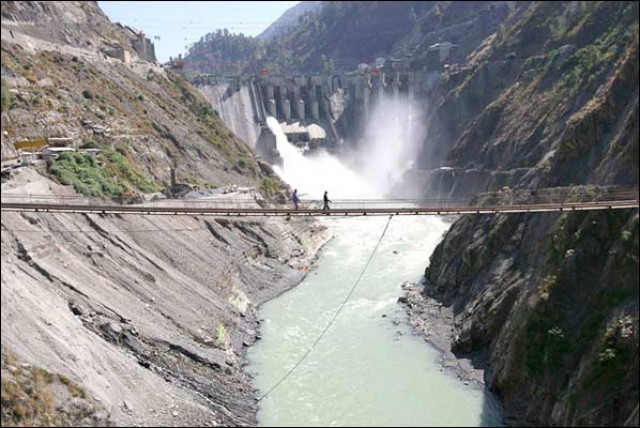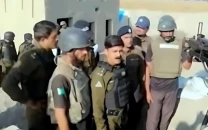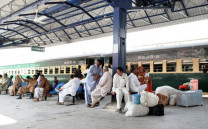India-Pakistan issues: Forget Kashmir, terrorism. Worry about water
Water scarcity, Indus treaty discussed at LUMS seminar.

India-Pakistan issues: Forget Kashmir, terrorism. Worry about water
Pakistan and India need to worry less about the Kashmir issue and terrorism and more about their scarce water resources, as the latter is a much more serious issue that will touch the lives of the entire populations of both countries, said speakers at a seminar here at the Lahore University of Management Sciences on Friday.
“We need to put the Kashmir issue aside and see to water as it will affect each and every one of us,” said IA Rahman, director of the Human Rights Commission of Pakistan during the panel discussion at the seminar, titled ‘Re-imagining River Indus: Response to Water Security’. “We should set up commissions to share water resources rather than divide them.”
In his speech opening the seminar, LUMS Vice Chancellor Adil Najam said that in 60 years of conflict and (at least) three wars, Pakistan had killed fewer Indians than die of waterborne diseases in New Delhi each year, while India had killed fewer Pakistanis than die of waterborne diseases in Karachi each year.
Six undergrad students gave detailed presentations on resource-sharing problems in other countries, similar to the water-sharing issue in Pakistan and India. They were followed by a discussion by a panel that included IA Rahman, lawyer and environmental activist Rafay Alam, former foreign minister Shah Mehmood Qureshi, and Syed Jammat Ali Shah, Pakistan commissioner of the Indus Basin Water Treaty Commission.
Alam said international concerns about the environment were in their infancy when the Indus Waters Treaty was negotiated. “Now we need to engage communities living in the basin. The water resources of both countries were abundant at the time, now they are scarce,” he said.
He said that the issue needed to be looked at scientifically and academically. “There is a need for a non-political discussion on how to best utilise water resources,” he said.
He proposed a new commission between India and Pakistan and suggested that water from the Ravi should be shared. “We need to share and cooperate rather than be divisive,” he said.
Rahman agreed that academia could help bridge the gap. He said in developed countries, think tanks came up with ideas that the government then developed and implemented.
He said that regardless of how Pakistan and India felt about each other, their geographical and historical closeness meant they had to cooperate. “We have divided the countries but we cannot divide the economies. The problem is we are not communicating information in time about water discharge,” he said.
He said that another concern in Pakistan was the reliance on tube-wells. “We have flouted British era restrictions on ground water usage by allowing [too many] tube-wells,” he said.
Syed Jamaat Ali Shah said the two sides did not trust each other. “We want to get at least drinking water from the Ravi, Sutlej and Bias. When we last tried negotiating it, India wanted water from the Chenab. It also did not discharge its Ravi water, saying Pakistan is wasteful of its resources and cannot be trusted.”
He said when Pakistan asked for early information on water discharge so it could compile flood warnings, the Indians sought water from the Chenab and Indus.
He said that Pakistan lacked water experts. “We do not have a single international water expert in Pakistan. We always seek help from England or the US. We cannot negotiate with India unless we increase capacity,” he said.
“How can anyone from our government talk about water as an economic resource with [Indian Prime Minsiter] to Manmohan Singh? He has a PhD in economics; no one in our government does,” he said.
Shah Mehmood Qureshi said that Pakistan had potential water disputes with Afghanistan too. “Seventeen per cent of our water is from Afghanistan. Now I hear Afghanistan is planning new structures on the River Kabul which the Pakistan government is not doing anything about. I foresee serious interprovincial and interstate issues. A conflict resolution mechanism is needed,” he said.
Published in The Express Tribune, October 15th, 2011.


















COMMENTS
Comments are moderated and generally will be posted if they are on-topic and not abusive.
For more information, please see our Comments FAQ